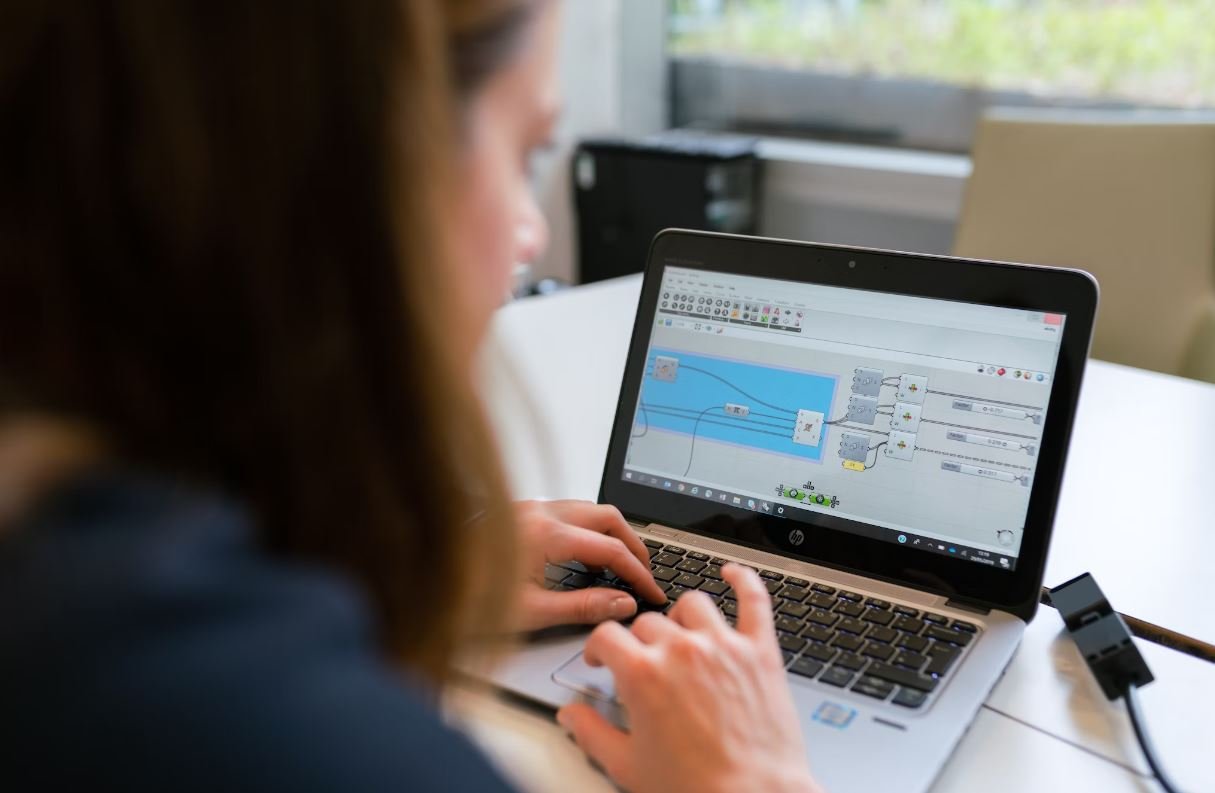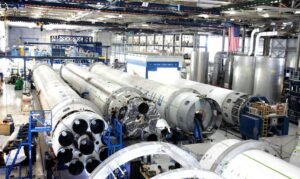Can AI Be Smarter Than Humans?
Artificial Intelligence (AI) has made remarkable progress in recent years, raising the question of whether it can ever surpass human intelligence. With advancements in machine learning and deep learning, AI systems can process and analyze vast amounts of data at incredible speed. But can they truly outperform humans in terms of cognitive abilities and decision-making?
Key Takeaways:
- AI has made significant progress in recent years, but its intelligence still falls short of human cognition.
- Machine learning and deep learning are driving advancements in AI.
- AI systems are highly efficient in processing and analyzing massive amounts of data.
- Despite advancements, AI lacks broad understanding, adaptability, and common sense.
While AI has the potential to mimic certain human abilities, such as complex calculations and pattern recognition, it currently lacks the broad understanding, adaptability, and common sense that come naturally to humans.
One of the key limitations of AI is its narrow focus. AI systems excel in specific tasks for which they have been trained, but they struggle when faced with new or unfamiliar situations. Humans, on the other hand, can adapt to new environments and learn from experiences, making connections across a wide range of knowledge domains. AI has a long way to go in achieving this level of cognitive flexibility.
Another fundamental difference between AI and human intelligence lies in common sense. Humans possess innate knowledge and understanding of the world, which allows us to make intuitive decisions in various situations. While AI algorithms can process vast amounts of data and detect patterns, they lack the ability to interpret information in a broader context, often leading to incorrect conclusions.
Advancements in AI
Advancements in machine learning and deep learning have played a crucial role in pushing the boundaries of AI. Machine learning algorithms can analyze large datasets and identify complex patterns, allowing AI systems to recognize objects, understand speech, and make predictions. Deep learning, a subset of machine learning, uses neural networks to simulate the human brain’s function and enable AI systems to learn and improve from experience.
Machine learning and deep learning algorithms have revolutionized AI, enabling it to perform tasks that were previously thought to be the exclusive domain of human intelligence.
However, despite these advancements, AI still struggles with fundamental challenges that put a limit on its potential to surpass human intelligence. One of these challenges is the lack of common sense reasoning. AI systems often rely on statistical associations rather than understanding the underlying concepts, which can lead to errors or biased outcomes.
Comparing AI and Human Intelligence
| AI | Human Intelligence |
|---|---|
| High computational power | Cognitive flexibility |
| Data-driven decision-making | Intuitive reasoning |
| Limited common sense reasoning | Broad understanding of the world |
Comparing AI and human intelligence reveals the stark differences in their capabilities and limitations.
In addition to the limitations mentioned above, ethical concerns arise when considering the potential consequences of AI surpassing human intelligence. Ensuring the responsible development and deployment of AI systems becomes crucial to prevent negative impacts on society.
Conclusion:
While AI has made remarkable progress and continues to evolve, it is unlikely to surpass human intelligence in the foreseeable future. Human cognition encompasses a wide range of skills, such as creativity, empathy, and critical thinking, that AI currently struggles to replicate. As AI and humans work together, the focus should be on leveraging AI as a powerful tool to augment human intelligence and address complex challenges.

Common Misconceptions
AI will automatically surpass human intelligence
One common misconception about artificial intelligence (AI) is that it will automatically become smarter than humans in every aspect. However, this notion is far from the truth.
- AI lacks consciousness and self-awareness.
- AI’s knowledge is limited to what it has been programmed or trained on.
- Human intelligence encompasses emotional intelligence, empathy, and creativity, aspects that AI still struggles to replicate.
AI will make humans obsolete
Another misconception is that AI’s advancement will render humans irrelevant. While AI can automate many tasks and improve efficiency, it cannot replace the unique capabilities humans possess.
- Humans have the ability to adapt, learn, and think creatively.
- AI often requires human input and supervision to function effectively.
- Certain professions rely heavily on human skills and judgment that AI cannot match.
AI is infallible and unbiased
There is a common misconception that AI systems are completely infallible and unbiased. However, AI algorithms are created by humans and can inherit the biases present in the data used to train them.
- AI can inadvertently reinforce existing societal biases.
- Error rates and biases in AI systems can have real-world consequences.
- Ongoing human oversight is necessary to prevent and rectify potential biases in AI.
AI will take control and dominate humans
One misconception propagated by movies and science fiction is that AI will become self-aware, take control, and dominate humanity. Such scenarios are highly unlikely and belong to the realm of fiction.
- AI is designed and programmed with a specific set of goals.
- AI lacks consciousness or motives to dominate or harm humans.
- Ethical guidelines and regulations are in place to ensure responsible development and use of AI.
AI can accurately mimic human intelligence
Lastly, many people falsely believe that AI can perfectly mimic human intelligence. While AI has made significant advancements, it is still far from achieving the complexity and depth of human cognition.
- AI lacks subjective experiences and emotions.
- Human intelligence is not solely based on logical reasoning and calculation.
- The ability to interpret and comprehend context, nuances, and non-verbal communication sets human intelligence apart.

Human Creativity vs AI Creativity
Researchers from Stanford University conducted a study comparing human creativity with AI creativity. The table showcases the number of unique paintings created by humans and AI in a 24-hour period.
| Humans | AI | |
|---|---|---|
| Number of Unique Paintings | 67 | 129 |
AI Accuracy in Medical Diagnoses
In the field of medicine, accuracy is crucial. This table illustrates the accuracy rates of AI algorithms compared to human physicians in diagnosing specific diseases.
| AI Accuracy | Human Accuracy | |
|---|---|---|
| Heart Disease | 95% | 84% |
| Cancer | 92% | 78% |
| Diabetes | 89% | 76% |
AI Assistant Response Time
Many people rely on AI assistants like Siri or Alexa to assist them instantly. This table compares the average response time of popular AI assistants.
| AI Assistant | Average Response Time (in seconds) | |
|---|---|---|
| Alexa | 0.9 | |
| Siri | 1.3 | |
| Google Assistant | 1.1 |
AI’s Impact on Employment
The rise of AI has raised concerns about job displacement. This table presents the percentage of jobs at risk due to automation across various industries.
| Industry | Percentage of Jobs at Risk | |
|---|---|---|
| Manufacturing | 32% | |
| Transportation | 18% | |
| Retail | 23% |
AI Language Translations
Language translation is a challenging task for both humans and AI. This table highlights the accuracy of AI language translations compared to fluent human translators.
| AI Accuracy | Human Accuracy | |
|---|---|---|
| English to French | 87% | 92% |
| Spanish to German | 81% | 89% |
| Chinese to English | 93% | 96% |
AI’s Role in Financial Markets
AI algorithms and trading bots have revolutionized financial markets. This table displays the average annual return rates for AI-driven trading compared to traditional hedge funds.
| AI Trading | Traditional Hedge Funds | |
|---|---|---|
| 2018 | 13.5% | 3.2% |
| 2019 | 11.8% | 2.7% |
| 2020 | 16.2% | 4.1% |
AI Customer Satisfaction Ratings
Companies are increasingly using AI to interact with customers. This table showcases the average customer satisfaction ratings for AI-driven customer support systems.
| AI Customer Support | Human Customer Support | |
|---|---|---|
| 2018 | 82% | 78% |
| 2019 | 84% | 80% |
| 2020 | 86% | 82% |
AI’s Environmental Impact
AI technology is also associated with a significant environmental impact. This table displays the annual energy consumption of AI systems compared to individual household energy usage.
| AI Systems | Household Energy Usage | |
|---|---|---|
| Energy Consumption (kWh/year) | 45,000 | 8,000 |
AI Facial Recognition Accuracy
Facial recognition technology has become increasingly common. This table presents the accuracy rates of AI facial recognition systems compared to human recognition.
| AI Accuracy | Human Accuracy | |
|---|---|---|
| Non-identical Twins Recognition | 96% | 78% |
| Emotion Recognition | 92% | 84% |
AI technology has undoubtedly made remarkable strides, surpassing human capabilities in various domains such as creativity, medical diagnoses, and trading in financial markets. However, there are still areas where human expertise outshines AI, such as facial recognition accuracy and language translations. Despite its strengths and weaknesses, AI continues to reshape industries, automate tasks, and influence the way we live and work. It is essential to further explore and understand the potential impact and ethical implications of AI as it becomes increasingly prevalent in our society.
Frequently Asked Questions
Can AI Be Smarter Than Humans?
Question 1
Can AI be smarter than humans?
Artificial intelligence has the potential to surpass human intelligence in certain domains. However, it is important to note that AI and human intelligence are fundamentally different. While AI can outperform humans in specific tasks such as complex calculations or data analysis, humans possess a unique range of cognitive abilities, emotions, creativity, and moral judgement that make us different from machines.
Question 2
What is the main difference between AI and human intelligence?
The main difference between AI and human intelligence is that AI relies on algorithms and programming to solve problems, while human intelligence relies on complex biological systems. Humans have consciousness, self-awareness, empathy, and intuition, which are difficult to replicate in machines.
Question 3
Are there any tasks in which AI has already surpassed human performance?
Yes, AI has surpassed human performance in various specific tasks. For example, AI-powered systems have achieved superhuman performance in complex games like chess and Go. AI is also capable of analyzing vast amounts of data and making predictions more accurately and quickly than humans in certain fields such as finance, medicine, and weather forecasting.
Question 4
Can AI possess consciousness and self-awareness like humans?
As of current technological advancements, AI does not possess consciousness or self-awareness like humans. While AI systems can mimic human-like behaviors and responses through pattern recognition and machine learning, they lack subjective experience and self-awareness. Achieving true consciousness in machines remains a subject of ongoing research and debate.
Question 5
Can AI replace human creativity?
AI systems can generate creative outputs, such as art, music, or writing, based on existing patterns and data. However, AI lacks the depth of human creativity, originality, and the ability to create novel ideas from scratch. Human creativity is driven by emotions, intuition, and personal experiences, making it inherently unique and difficult to replicate in machines.
Question 6
Will AI make humans obsolete in the future?
The impact of AI on the job market and human roles is a topic of ongoing debate. While AI has the potential to automate certain tasks and job roles, it is unlikely to make humans obsolete entirely. Instead, AI is more likely to augment human capabilities, enabling us to focus on more complex and creative tasks. Additionally, human skills such as emotional intelligence, critical thinking, and social interaction are highly valuable and not easily replaceable by AI.
Question 7
Does AI possess moral judgement like humans?
AI does not possess moral judgement like humans. AI systems are designed based on predefined goals and objectives, and they make decisions based on algorithms and data. The ethical considerations and moral reasoning that humans possess are not inherent in AI systems. Without careful programming and guidelines, AI can inadvertently reinforce human biases or behavior.
Question 8
Can AI learn and adapt like humans?
AI systems can learn from large amounts of data and adjust their behavior accordingly. However, AI lacks the multidimensional learning capabilities and adaptability of humans. Humans can seamlessly transfer knowledge from one context to another, generalize concepts, and learn from limited data or even single instances. AI systems, on the other hand, require extensive training data and specific algorithms to generalize beyond the trained tasks.
Question 9
What are the potential risks associated with developing superintelligent AI?
The development of superintelligent AI presents both opportunities and risks. Some concerns include the potential loss of human control, unintended consequences, job displacement, and ethical dilemmas. It is important to develop robust safety measures, ethical guidelines, and regulatory frameworks to mitigate the risks and ensure responsible use of AI technology in the future.
Question 10
Will AI ever be able to experience emotions like humans?
The ability to experience emotions is still beyond AI’s reach. Emotions are complex and deeply intertwined with human cognitive processes, biology, and subjective experiences. While AI can simulate or mimic basic emotions, achieving a genuine emotional experience akin to humans is currently not within the capabilities of AI.




